By Gibrilla Kamara and Joshua Lew McDermott
Sierra Leone is a small country on the coast of West Africa. Home to about 7.5 million people, the country is home to 16 recognized ethnolinguistic groups, all with rich histories and cultures. The Mani people, also known locally as the Bollum*, were once a well-known and widespread culture throughout coastal West Africa.
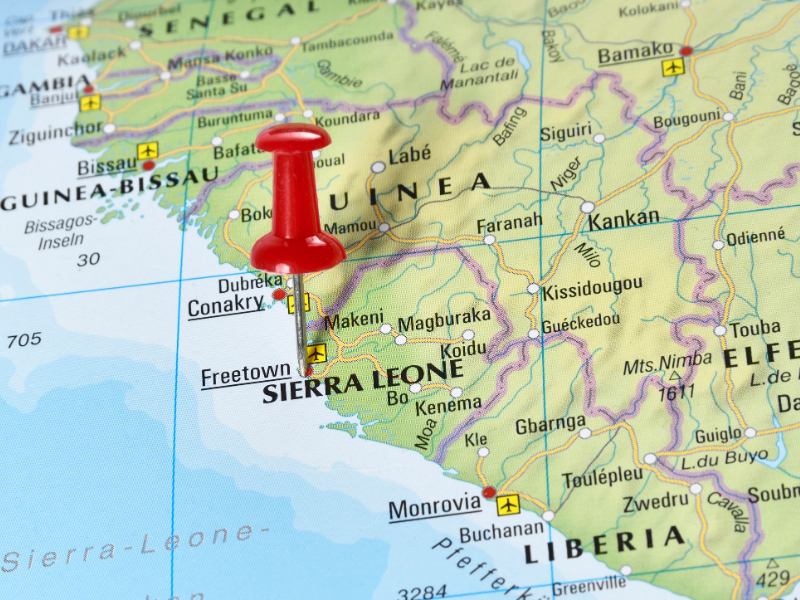
Due to suppression from neighboring Soso and Themene ethnic groups in Samu Chiefdom, the Mani People’s original home territory, some Mani moved to the southern part of the country which contributed to reducing the population of native speakers. Today, however, Mani is a critically endangered language spoken by likely only a few hundred or as few as a few dozen individuals, most of them adults or seniors. There are no monolingual Mani speakers.
The remaining Mani speakers live primarily in the Samu Chiefdom, Kambia District, in North West Sierra Leone on the border with Guinea. Within Samu, most fluent speakers remain in and around the village of Moribaya in Samu Chiefdom.
Sierra Leone gained independence from the United Kingdom in 1961. Its history of colonization, and its more recent post-colonial history, has contributed to it being one of the least developed countries in the world. The country has struggled with ten years of war, the Ebola outbreak, mudslides, social and economic instability and a lack of basic infrastructure like roads and transportation, medical care, water supply, electrical grids, sewage, telecommunications networks, healthcare, social welfare, emergency services. Due in part to these and other issues, relatively little work has been done, or is being done, in the country to preserve and promote the country’s endangered Indigenous languages and traditional customs and cultures. With a booming population, rapid urbanization, and extreme deforestation and environmental crisis engulfing the country, the disappearance of traditional knowledge, social ties, cultural practices, and languages has intensified exponentially.
In hopes of aiding in the preservation and revitalization of traditional culture and language, the authors, language educator Gibrilla Kamara (Sierra Leone) and sociology professor Joshua McDermott (US) founded the Society for Indigenous Languages, Communities, and Cultures of Sierra Leone (SILCC) in 2020. Language revitalization in the West African context is unique compared to other regions of the world. This is true of the Mani language as well. Unlike many other contexts of Indigenous language communities, which are pressured to shift due to the dominance of colonial languages, Mani language use is shifting due to the dominance of another African language: Soso. Most Mani speakers also speak Soso and identify as both Mani and Soso.
Also unique to Mani is the fact that many people in Samu, including in the Chiefdom Headquarter Town of Keychom, still identify as Mani despite not speaking the language. Great pride is taken in identifying as Mani. The Chiefdom’s Paramount Chief, the most important and highest political and cultural office in the Chiefdom, is a proud Mani who laments he and his children do not speak the language.
In July of 2023, we traveled to Keychom to meet with the Paramount Chief, community members, and leaders to see how we could best aid efforts to stop the disappearance of Mani. The journey to Samu Chiefdom and its headquarter town of Keychom is not easy, especially in the rainy season, which lasts from June to October. After a four-hour journey by taxi from Freetown to Kambia Town, we traveled by motorcycle on dirt roads under pouring rain for another four to five hours before finally arriving in Keychom.
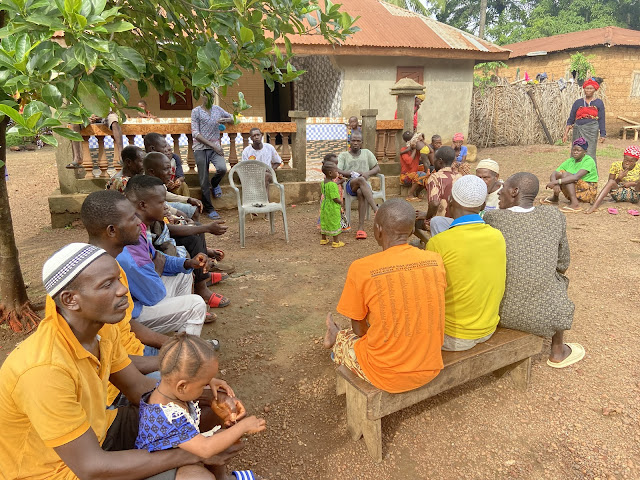
The last outsiders to come to the area for purposes of documenting Mani were the American linguist George Tucker Childs and his team in the early 2000s. Dr. Childs built strong relationships with community members throughout the Samu Chiefdom and in the village of Moribaya specifically. Locals still speak fondly of him and his fluency in Mani.
It was no surprise, then, that people assumed Joshua was Dr. Childs’s son, referring to him as Tucker Childs. In Keychom and in Moribaya, we met with community leaders and stakeholders. The excitement and pride were palpable among Mani speakers and non-Mani speaking Mani individuals, who were all eager to organize and work towards revitalizing the language. Even for those who don’t speak Mani, Mani vocabulary is recalled often with pride. On the first night, we ate freshwater fish, known in the local lingua franca of Krio as jungle fish, and were told that in Mani they are known as Korote.
Samu is a major rice producing region of Sierra Leone, and rice production is a central aspect of the local community, economy, and culture. During our visit, it was harvesting time, so many community members were spending their days out in the rice fields harvesting their rice crop.
During our first meeting with the Chief and other community Elders in Moribaya, word spread that outsiders interested in helping to preserve Mani were in town. One man made the long trek from the rice fields to greet us at the meeting, where he proceeded to teach us several folk songs in Mani. A young woman of maybe twenty years old, the youngest Mani speaker we met on our journey, joined in, singing a song in Mani about a frog traveling by canoe to the rice fields for harvest.
In short, local pride and enthusiasm in the Mani language abounds in Samu Chiefdom. The issue is, as one might imagine, one of resources.
In discussions with community leaders, local teachers, and local children, it was decided collaboratively between the Samu Chiefdom and SILCC that a multi-pronged approach is necessary if any headway is to be made in preserving and revitalizing Mani.
We went first to the paramount chief who is the custodian of the entire Chiefdom. He hosted us for three days in his palace, while he was sending us each day to have meetings with section chiefs in various communities. We wanted to make it possible to host a program where we could bring community people, students, and teachers together in a big gathering for the day of Sierra Leone independence and discuss the language revitalization program.
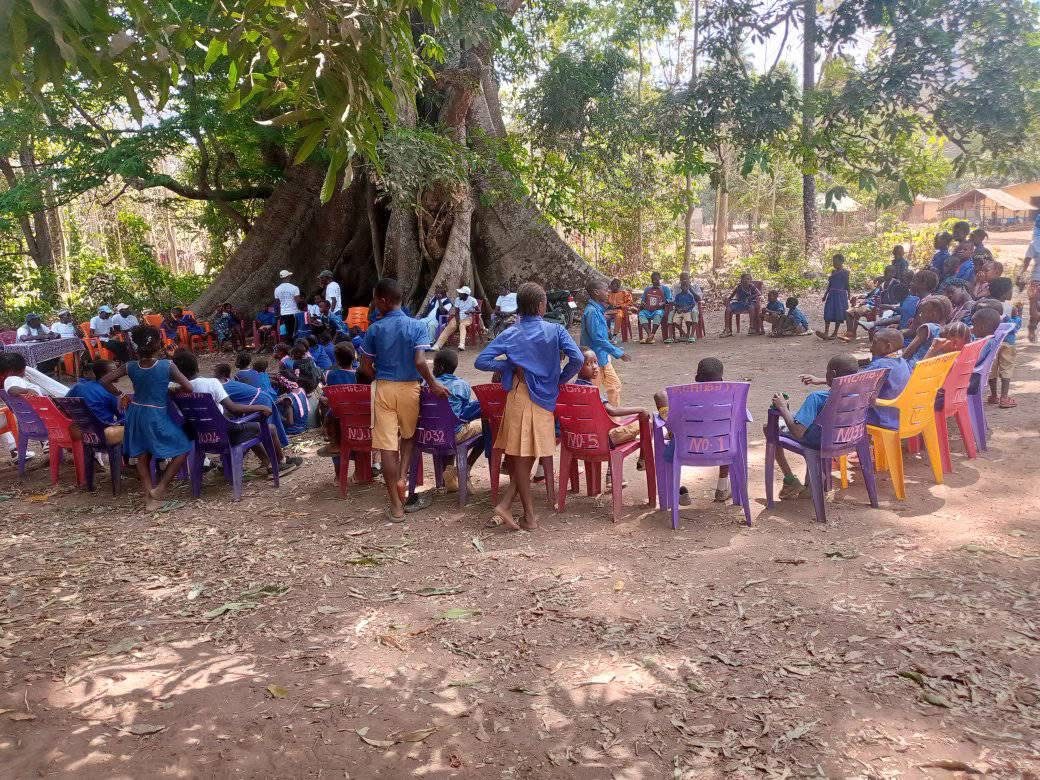
We agreed that one essential approach, and a focus of our collective efforts, would be to integrate Mani literacy into the local primary schools surrounding the village of Moribaya. The resources and training necessary to implement Mani instruction and literacy into the schools are significant, especially given that we are a new organization with little to no outside support for our project.
In October of 2023, SILCC held a writing workshop with a handful of local, literate Mani speakers who were nominated by the chief of Moribaya to participate. The purpose of the multi-day workshop was to produce a primary level reading book in Mani, utilizing the documentation provided by the work of Tucker Childs and his team. Our goal is to produce a book written by and for the community which draws upon local stories and customs in its literacy lessons.
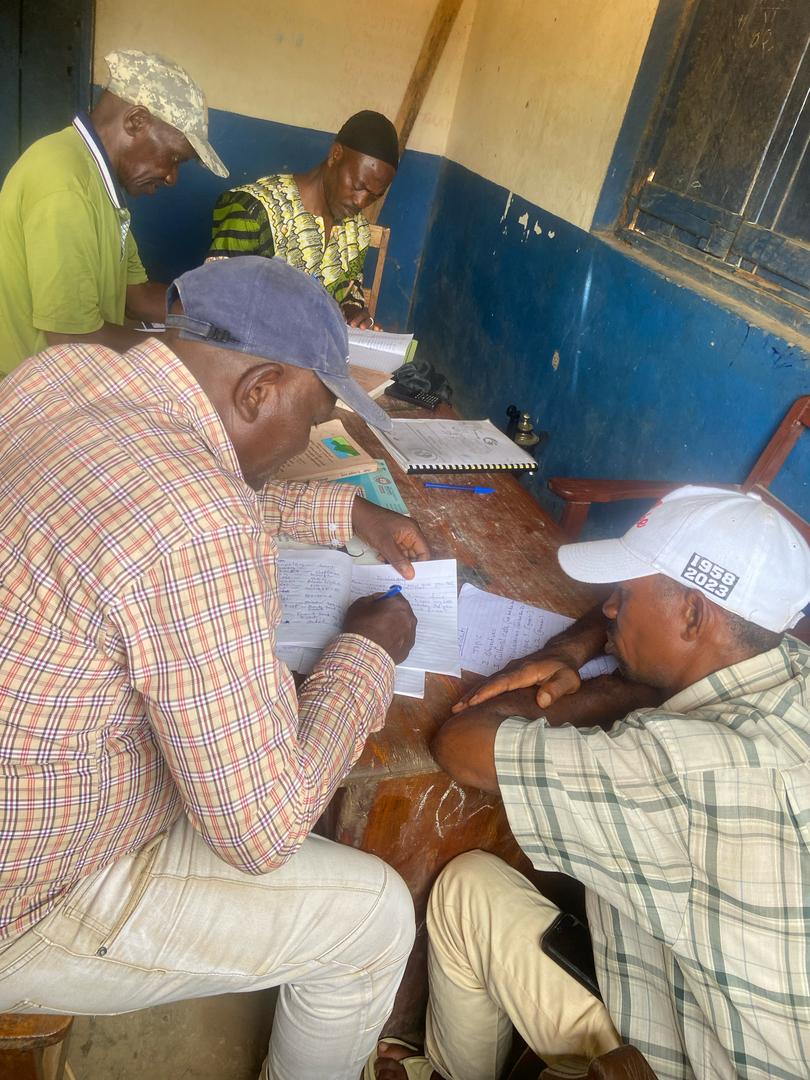
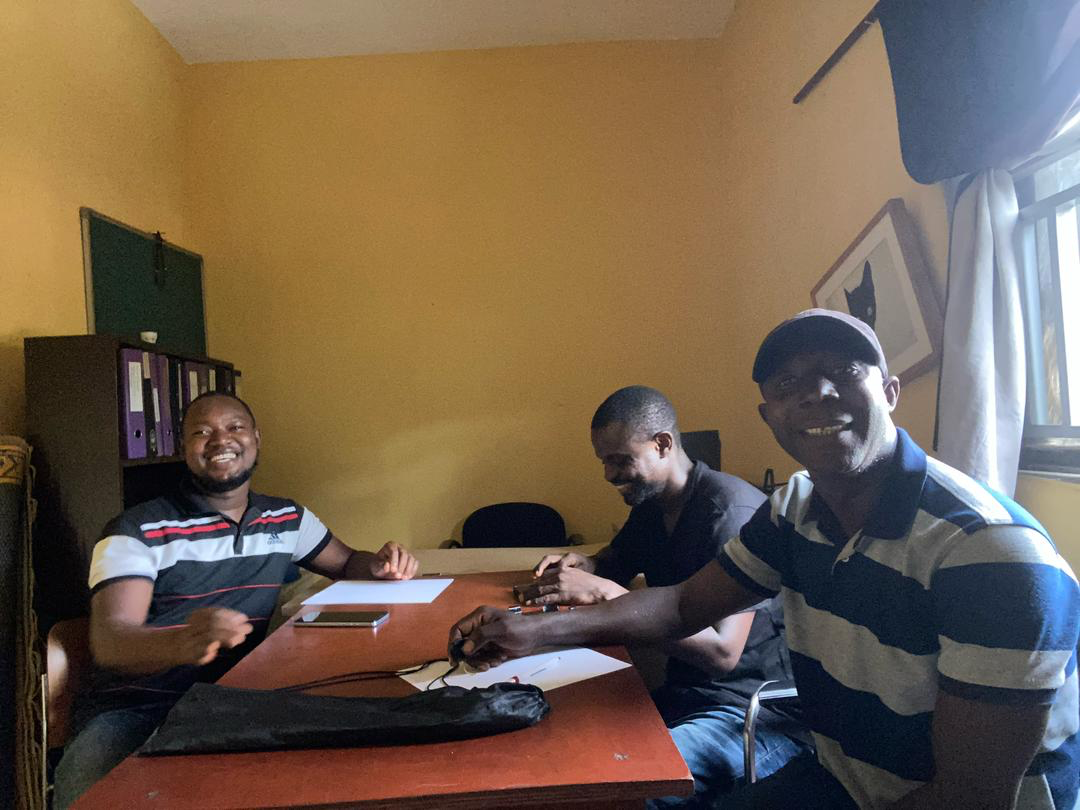
This primary level reading book will be bilingual in Mani and English. By gaining literacy in Mani, the students in Samu Chiefdom will be able to learn through their own language. As research shows, learning to read in their mother tongue helps students to acquire literacy in other languages; and gaining literacy in multiple languages, including dominant languages like English, is important economically for the community.
Our next step is to publish the community-produced Mani primary learning book in a plastic format that can withstand the humidity of the area, which can lead to the rapid degradation of paperback books. At the same time, SILCC is working on organizing a series of teacher training workshops, and has continued to meet and make arrangements with teachers and education leaders in order to facilitate Mani instruction as part of the daily curriculum in Moribaya and other surrounding small villages. One of the challenges is the fact that many of the current teachers do not speak Mani.
One possible solution to this challenge is to enlist the handful of Elders who are both literate and fluent speakers of Mani language to enter schools to teach Mani instruction for one or two periods each day. SILCC is working on coordinating this, though our lack of resources and the remoteness of the area have proven challenging.
Beyond working with the school system, we also work with community members to establish adult literacy and Mani learning classes and activities. In the future, we would like to do more of this kind of work – our work is hindered by a lack of resources needed to carry out more plans and projects that we are anxious to do.
Community members have also voiced the special importance of mothers in passing Mani language to their children, which means young women and mothers in the community are essential ambassadors if we are to preserve Mani language.
Challenges and constraints notwithstanding, SILCC and the people of Samu remain excited, eager, and hopeful that a positive future exists for Mani.
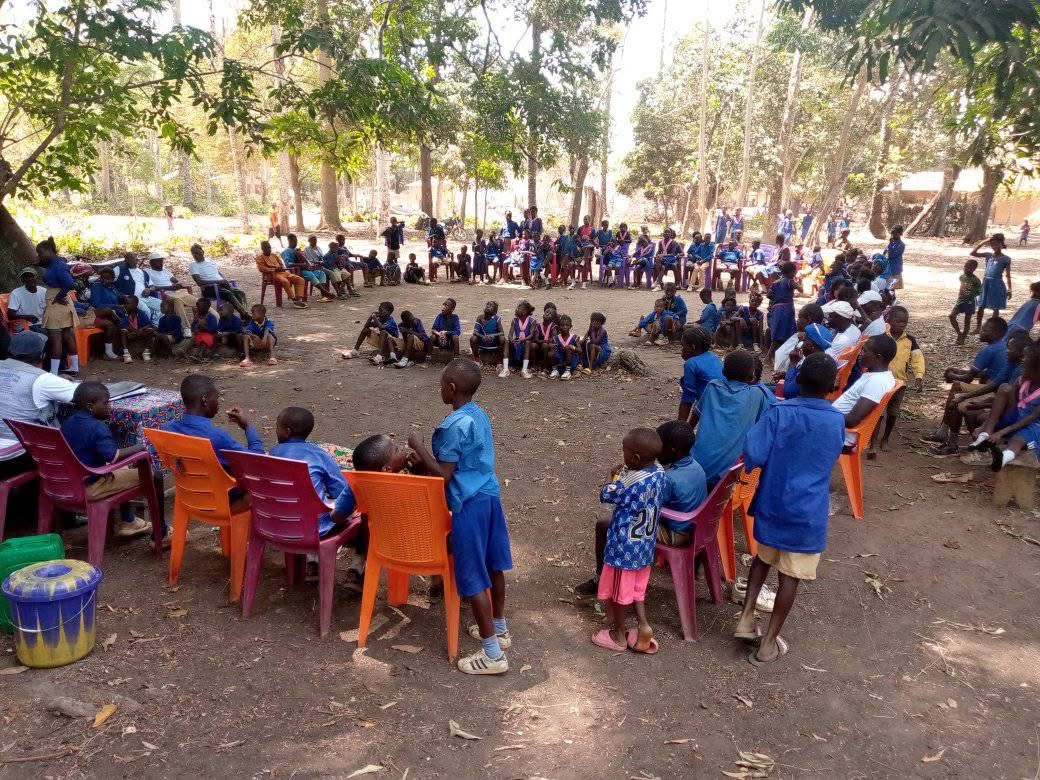
*In this article we will be using the name Mani, which is the Mani People’s name for themselves. The neighboring Soso tribe call them Mandain, while the Themene (Temne) people call them Bollum. Because Themene people are one of the largest populations in the area, the name “Bollum” is widely known in Sierra Leone.
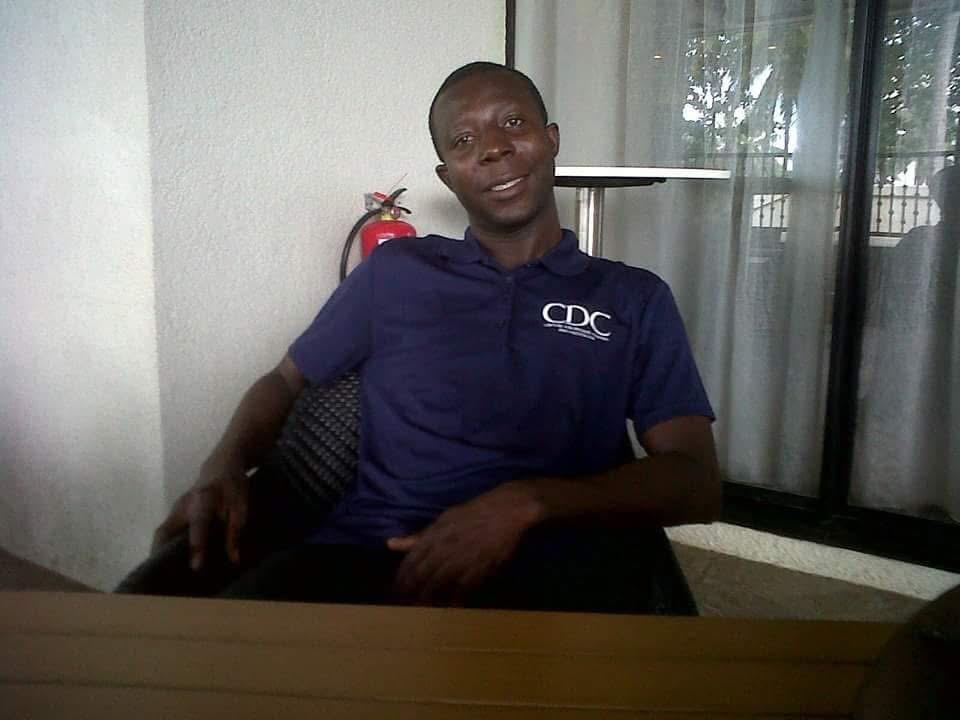
About Gibrilla Kamara
I was born and raised in a remote village in Sierra Leone and have spent most of my adult life preserving languages and culture in my home country. I’ve worked as the Language Coordinator at The Institute for Sierra Leonean Languages, as the Language and Cross-cultural Facilitator at the United State Peace Corps in Sierra Leone, and currently, I work as the Executive Director for the Society for Indigenous Languages, Communities, and Cultures in Sierra Leone, which I co-founded in 2020.
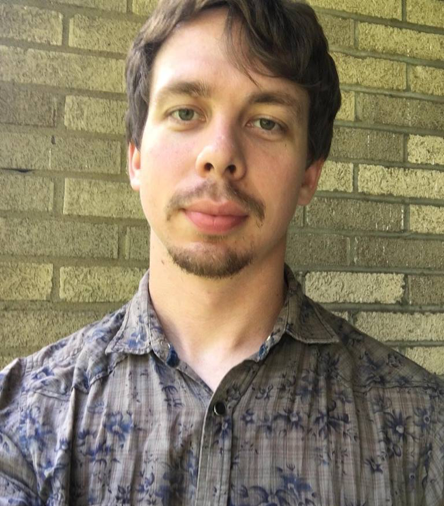 About Joshua Lew McDermott
About Joshua Lew McDermott
I am a sociologist and political economist from the U.S. I have been traveling to, and doing work in, Sierra Leone since 2013. My work explores the informal economy, labor, extractivism, neocolonialism, and inequality. I am an assistant professor of sociology at Southeastern Louisiana University. BlueSky: @jlewmcd.bsky.social